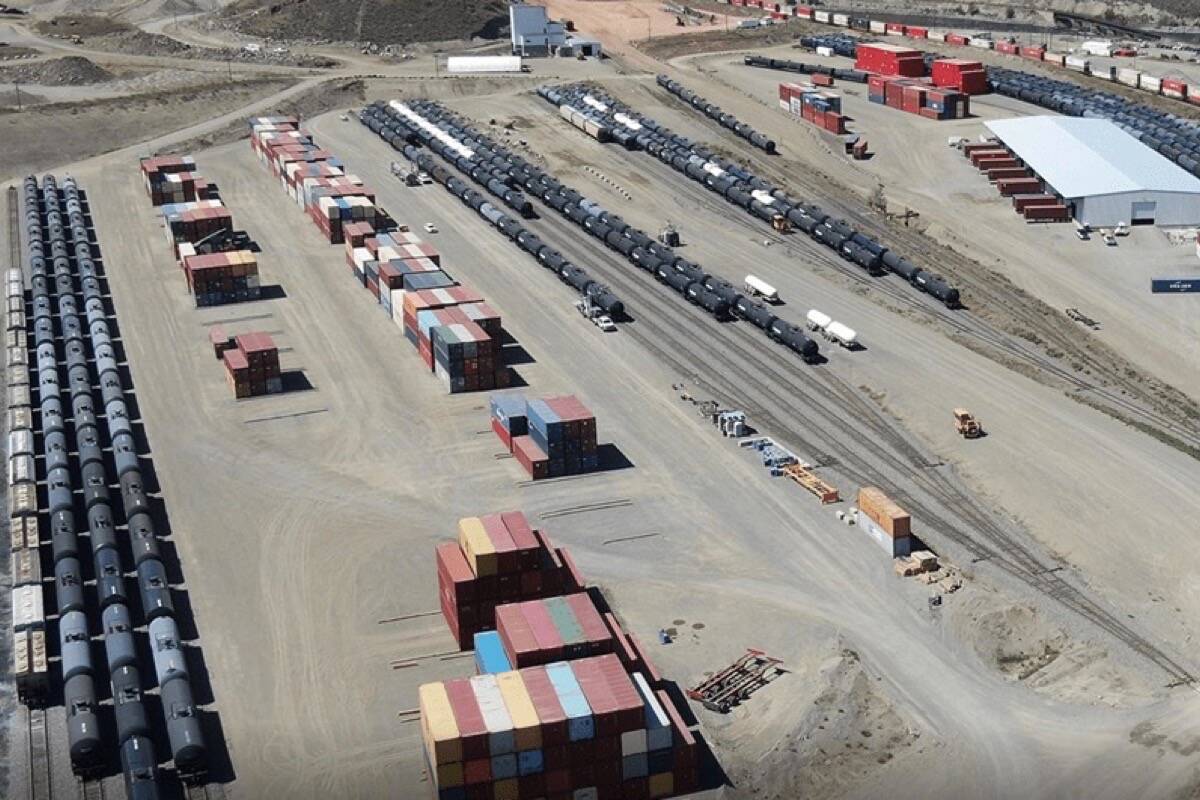The Ashcroft Terminal Inland Port and the Vancouver Fraser Port Authority announced on Nov. 22 that they have signed a letter of intent that will see the two organizations work together to invest in, build, and operate rail infrastructure at Ashcroft Terminal.
In a press release dated Nov. 22, Ashcroft Terminal said that the move “will reduce congestion within the Port of Vancouver, support capacity growth, and enhance resiliency within the critical Asia-Pacific Gateway trade corridor. This unique partnership will advance the efficient movement of imports and exports in Western Canada and help deliver goods to market faster.”
The terminal, which is 300 kilometres east of Vancouver, will provide infrastructure to supply railcar storage and staging, which will lead to improved resiliency and cargo fluidity along the Asia-Pacific Gateway Corridor. Both parties anticipate that the railcar storage program will be operational by fall 2024, and will help remove bottlenecks along one of the country’s major transportation corridors.
“We signed the letter of intent to build and invest in rail infrastructure to reduce congestion and support capacity growth,” says Jessica Williams, senior manager, corporate affairs and communications for Ashcroft Terminal Ltd.
“Both parties are working on the details of what those arrangements will be so that Ashcroft Terminal will provide rail car storage. The Port of Vancouver is interested in building capacity so that railcars can be sorted and staged for the rest of Canada elsewhere. Ashcroft Terminal has the land to support those activities.”
Williams notes that the arrangement is an opportunity to increase Canada’s supply chain resiliency.
“We’ve seen that that corridor [from the Port of Vancouver] is very vulnerable to disruption, so being able to diversify the transportation that runs between the Port of Vancouver and the rest of Canada is good. If we can diversify and move some goods onto rail, that’s one solution.”
She adds that there is not expected to be any impact to the local community in terms of traffic or local construction. “Everything will be on Ashcroft Terminal property. We’re still scoping out the details of the contract, and will announce those details to the community as they become available.”
It is expected that once it is operational, the new railcar storage agreement will create several benefits. Goods will be delivered to market faster, and with fewer delays; Western Canada’s supply chain and economy will be “futureproofed” against disruptions such as floods, wildfires, and labour shortages; and the carbon footprint of Canadian supply chains will be reduced.
“Creating supply chain resiliency within the Vancouver Gateway is becoming increasingly more important to mitigate against challenging disruptions that can have devastating impacts to trade fluidity and the reliable movement of goods to and from the Port of Vancouver,” said Peter Xotta, vice president, operations and supply chain at the Vancouver Fraser Port Authority.
“This partnership presents an exciting opportunity to enhance port-related trade capacity in the region and reduce congestion within the supply chain, which will lead to more reliable access for Canadians to the goods they need to support their families and businesses.”
“The signed letter of intent is an exciting first step in strengthening Western Canada’s supply chain,” said Chris Shubert, CEO and chief commercial officer at Ashcroft Terminal. “The Asia-Pacific Gateway Corridor connects Canada to the rest of the world, moving critical cargo such as retail goods, bulk products, food, and natural resources.
“Ashcroft Terminal is the inland terminal equipped and strategically positioned to manage this new rail program and facilitate the fluid movement of Canada’s major economic drivers.”
Ashcroft Terminal is British Columbia’s largest inland port, with direct access to the CPKC and CN Rail mainlines. A member of the world’s leading port operator, PSA International, it is part of an extensive network of supply chain professionals from over 26 countries.
In operation since 2001, Ashcroft Terminal handles 7,000 railcars and 6,000 trucks annually. Ashcroft Terminal also provides railcar storage and transloading services for multi-modal transportation, materials handling, and railcar inspections and repairs.
The Vancouver Fraser Port Authority is the federal agency responsible for the shared stewardship of the Port of Vancouver, which extends from Roberts Bank and the Fraser River up to and including Burrard Inlet, bordering 16 municipalities and intersecting the traditional territories and treaty lands of more than 35 Coast Salish Indigenous groups.
It is Canada’s largest port, and the third largest in North America by tonnes of cargo. Enabling the trade of approximately $305 billion in goods with more than 170 world economies, port activities sustain 115,300 jobs, $7 billion in wages, and $11.9 billion in GDP across Canada.

